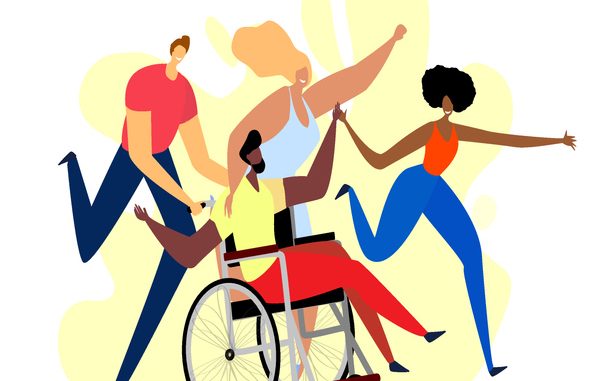
Building Back Better: toward a disability-inclusive, accessible and sustainable post COVID-19 World
Disability inclusion is an essential condition to upholding human rights, sustainable development, and peace and security. It is also central to the promise of the 2030 Agenda for Sustainable Development to leave no one behind. The commitment to realizing the rights of persons with disabilities is not only a matter of justice; it is an investment in a common future.
The global crisis of COVID-19 is deepening pre-existing inequalities, exposing the extent of exclusion and highlighting that work on disability inclusion is imperative. People with disabilities—one billion people— are one of the most excluded groups in our society and are among the hardest hit in this crisis in terms of fatalities.
Even under normal circumstances, persons with disabilities are less likely to access health care, education, employment and to participate in the community. An integrated approach is required to ensure that persons with disabilities are not left behind.
Disability inclusion will result in a COVID19 response and recovery that better serves everyone, more fully suppressing the virus, as well as building back better. It will provide for more agile systems capable of responding to complex situations, reaching the furthest behind first.
This year, the International Day of Persons with Disabilities (IDPD) falls on the same week as the Conference of States Parties to the Convention on the Rights of Persons with Disabilities, 30 Nov.-1 and 3 Dec. 2020 and will be observed throughout the week in conjunction with the 13th session of the Conference of States Parties to the CRPD.
History
The annual observance of the International Day of Disabled Persons was proclaimed in 1992 by United Nations General Assembly resolution 47/3. It aims to promote the rights and well-being of persons with disabilities in all spheres of society and development, and to increase awareness of the situation of persons with disabilities in every aspect of political, social, economic and cultural life.
Building on many decades of UN’s work in the field of disability, the Convention on the Rights of Persons with Disabilities (CRPD), adopted in 2006, has further advanced the rights and well-being of persons with disabilities in the implementation of the 2030 Agenda for Sustainable Development and other international development frameworks, such as the Sendai Framework for Disaster Risk Reduction, the Charter on Inclusion of Persons with Disabilities in Humanitarian Action, the New Urban Agenda, and the Addis Ababa Action Agenda on Financing for Development.
To read this article in its entirety at UN.org, click here.
